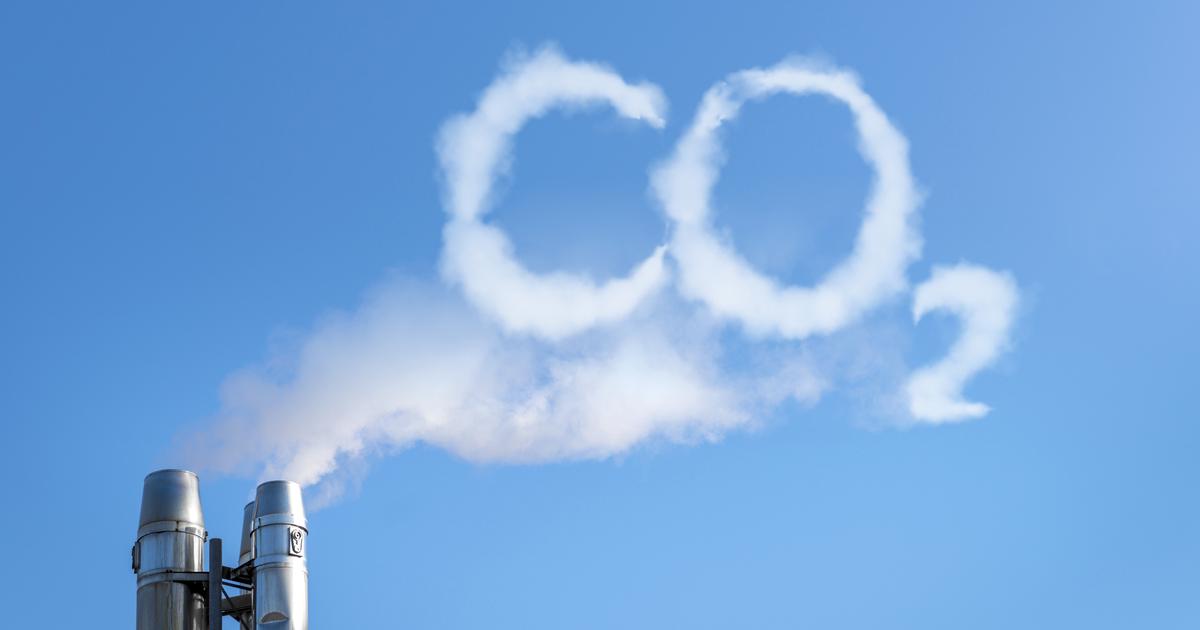Enlarge image
"The new IPCC report concludes that there has been no comparable rise in temperature for at least 2000 years."
Photo: Richard Drury / Getty Images
For years, 234 researchers scoured, assessed and discussed more than 14,000 specialist publications in order to write the new report of the IPCC “Intergovernmental Panel on Climate Change” - voluntarily, of course.
The IPCC's comprehensive status reports on the climate have been published every five to seven years since 1990 - this time it has even taken eight years since the last report because of the corona pandemic.
Nothing has changed in terms of the long-established basic facts about the climate, but after eight years of additional measurement data and further refined computer models, there has been significant advances in knowledge - for example on the subject of extreme weather conditions.
Stefan Rahmstorf
Stefan Rahmstorf
writes regularly for SPIEGEL about the climate crisis.
He is a climate and marine researcher and heads the Earth System Analysis department at the Potsdam Institute for Climate Impact Research (PIK).
Since 2000 he has also been Professor of Ocean Physics at the University of Potsdam.
His main research interests include paleoclimate research, changes in ocean currents and sea levels, and extreme weather conditions.
I myself was the lead author of the chapter on climate change in the history of the earth in the 4th IPCC report from 2007.
Back then, we paleoclimatologists were still exotic.
This time my co-author at the time, the French physicist and paleoclimatologist Valerie Masson-Delmotte, directed the IPCC report - findings from the history of the earth are taken into account throughout.
No comparable rise in temperature for thousands of years
It starts with the first graphic of the executive summary, which shows the temperature development over the past two thousand years. When my US colleague Michael Mann published the first such reconstruction for the past thousand years in the third IPCC report twenty years ago, it became a popular target for self-proclaimed “climate skeptics”. But in the meantime this climate change, which is reminiscent of a “hockey stick”, has long been independently confirmed many times over.
The new IPCC report concludes that there has been no comparable rise in temperature for at least 2000 years - and that temperatures today are likely to be higher than in the warmest phase of the Holocene 6000 years ago.
According to the state of the data, one has to go back around 125,000 years, to the Eem warm period before the last ice age, in order to find similarly high temperatures globally.
The best estimate of global warming of 1.1 degrees since the second half of the 19th century up to the years 2011 to 2020 corresponds to the best estimate of man-made warming.
In other words: the global warming since the 19th century has been almost entirely human.
I think that's good news, by the way, because we are not helpless, but can do something about it.
Sea levels are rising faster and faster
The ocean has warmed faster than ever since the end of the last ice age 11,000 years ago.
This is an important finding in paleoclimatology because the ocean covers 70 percent of the earth's surface.
When the climate changes, it stores the greatest amounts of heat (over 90 percent of modern global warming).
Sediments are constantly being deposited on the sea floor, from which one can read the past temperatures.
If the ocean has not warmed as much in 11,000 years as it did last, then the same is very likely true of the global mean temperature.
The rise in sea level logically follows from the warming due to the thermal expansion of the sea water and the melting land ice. First, the IPCC concludes that sea levels have risen faster since 1900 than in any previous century for at least 3000 years (based on research that I also contributed to). And the IPCC warns that the rise is accelerating - in the past fifteen years, sea levels have risen three times as fast as before 1971.
For the future, the IPCC, which is often overly cautious due to the consensus procedure, has made itself honest about the full dangers of sea level rise. In a 1.5-degree scenario, i.e. compliance with the Paris Agreement, the further increase by 2100 can probably be limited to less than half a meter. But if emissions continue to rise sharply, an increase of up to two meters by 2100 and even five meters by 2150 cannot be ruled out. That would be a catastrophe of planetary proportions due to the loss of stability of large continental ice masses.
But even in the more favorable case, if the ice masses initially remain stable, the sea level will rise inexorably for a very long time, just more slowly.
Even if the temperature is only 1.5 degrees, it will rise by two to three meters over the next two thousand years.
Major changes in sea level have also accompanied earlier climatic changes in the history of the earth - after the last ice age, sea levels rose by around 120 meters, and there is still enough ice for another 65 meters on earth.
What has long been foretold has happened
With the Gulf Stream system, the IPCC anticipates a "very likely" weakening in all emission scenarios and formulates somewhat vaguely that it has "medium confidence" that an abrupt collapse will not occur before 2100. I find that only moderately reassuring, especially in view of the new study by my PIK colleague Niklas Boers, which made headlines last week and, of course, has not yet been taken into account by the IPCC.
As for weather extremes, the IPCC report shows that what has long been predicted has happened.
Of course, extreme heat has increased dramatically.
But even in the case of heavy rain, the increase in most rural areas has now been documented with a high degree of certainty, for which there are sufficiently good data for a trend analysis.
Northern Europe, Western and Central Europe and Eastern Europe are also affected.
There is also evidence of an increase in drought in Western and Central Europe.
Human influence has also increased the likelihood of combined extreme events since the 1950s.
These are simultaneous heat waves and droughts, fire weather and floods.
For the first time, the IPCC also states that the proportion of strong hurricanes has increased.
The future prospects are anything but reassuring for extreme weather.
For example, it is “very likely that heavy precipitation events will become more intense and frequent in most regions as global warming continues,” the researchers conclude - and that the storm strengths of the strongest tropical storms will continue to increase.
Prevent it from getting much worse
What everyone should understand: even if the Paris Agreement is adhered to, the extreme weather conditions will not get any better, we can only prevent things from getting much worse. Even then, the earth will be warmer than it is today by at least the end of the century. And with every bit of extra warmth, the extremes increase in frequency and intensity. As the IPCC continues: "Many changes that can be traced back to past and future greenhouse gas emissions are irreversible for centuries to millennia."
The coming legislative period is likely to be the last in which Germany can still turn the tide of climate protection and make an appropriate contribution to achieving the Paris goals.
It is therefore high time that the Federal Government listens to the advisory body it has set up itself, namely the Environment Council, when it comes to an emissions budget that is appropriate for Germany.
And on their own Federal Environment Agency, as far as a reasonable price for CO2 emissions is concerned, which prices the resulting damage.
Everything else is a subsidy for the climate catastrophe that we taxpayers have to pay.
It is incredible that in 2021 parties are still campaigning with the promise to continue subsidizing low-cost flights and driving with internal combustion engines.








